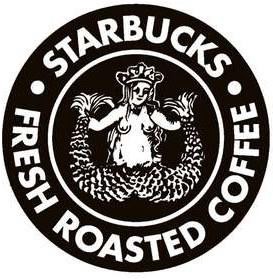What is digital transformation?
— a coffee story
 on [Unsplash](https://unsplash.com/?utm_source=unsplash&utm_medium=referral&utm_content=creditCopyText)](/assets/img/1ak94Xh5LGvl2TgtnXPQQhQ.jpeg) Photo by Rayi Christian Wicaksono on Unsplash
Photo by Rayi Christian Wicaksono on Unsplash
Digital transformation, like the old bridal rhyme, can be “something old, something new, something borrowed, something blue…” We’ve been transforming the enterprise to digital since accounting records were first computerized in the 1960s. The pace of change, however, is accelerating and the goals are becoming more ambitious, largely due to the emergence of cloud computing.
Digital transformation has also become an over-used buzzword — it promises everything from driverless cars to personal health sensors and virtual stores. The impact ranges from disrupting business models (Uber, for example) to conveniences such as opening a door for deliveries (Amazon Key, for example).
The Starbucks story
An interesting example of digital transformation is the Starbucks story. Once upon a time…

Starbucks coffee shops are typically treated as an extension to the home or office. They provide a comfortable spot to meet, to socialize or just to take a break. You go to a Starbucks, order a coffee and perhaps some food, and then relax for a while.
The customer experience is familiar to everyone — queue up to order, wait for the coffee to be produced, and then hope for a seat. Payment mechanisms were originally cash but improved gradually with loyalty cards and online debits. But there was no real change in the customer experience.
Many Starbuck’s patrons, however, don’t always want or have time for the full in-store experience. They prefer to quickly get a coffee and be on their way. What has Starbucks done to satisfy these customers?
Mobile pre-ordering is the current answer. The Starbucks mobile app lets you place an order remotely. It will be ready — prepared and pre-paid — upon your arrival at the shop. No queuing, no waiting for preparation, and no cash required.
For the “grab and go” customer, this digitally transforms their coffee shop experience. Could you imagine doing this by telephone? Starbucks building a mobile app for finding stores and keeping track of your rewards didn’t represent digital transformation. Adding the mobile ordering feature does.
Digital transformation for coffee
How does a company such as Starbucks innovate in this way? The answer is by understanding their customers, identifying unmet needs, and organizing for continuous improvement. They also minimize costs by re-using existing components, reducing custom development and adopting agile business practices.
The result may be the same Starbucks coffee, but there is increased satisfaction for more customers, stronger customer loyalty, and Starbucks reputation for forward thinking is enhanced. Finding a way to reap potentially lost revenue didn’t hurt either.
So, as you can see from the Starbucks story, a mobile app for payments is useful but not transformational. Online pre-ordering digitally transformed the way loyal customers could interact with Starbucks. Everyone benefits — Starbucks retains in-a-hurry customers and the customers feel that the quality of service is better.
Life is too short to suffer bad coffee… (or tequila)
Jason
Jason Hurlbut
Chief Value Officer, Tidal Migrations
@JasonHurlbut